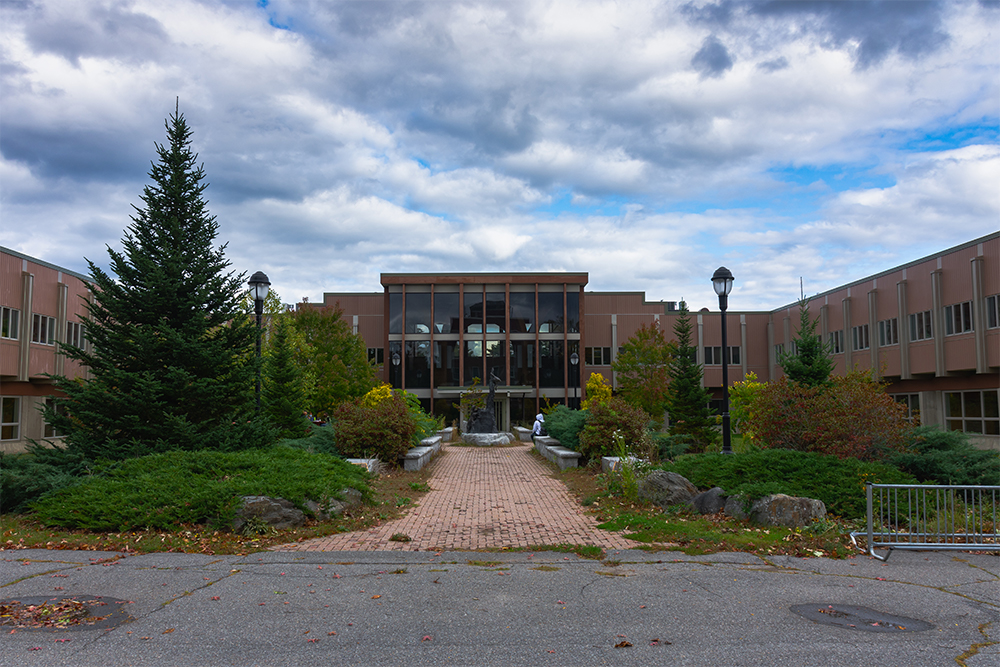Throughout the summer and into the fall the state of Maine has been experiencing a drought which is directly affecting the forestry and wildlife ecology industries. Earlier this week the majority of the state was in the midst of a severe drought, the effects of which can include loss of crops, governmental water restrictions and a shortage of water. Parts of Aroostook County and nearly all of York County faced an extreme drought, which is one level above severe. This includes widespread water restrictions and shortages as well as a guarantee of massive crop loss. Due to the recent wind and rain storm on Wednesday, Sept. 30 the drought has become less critical. The local drought and wildfires across the nation have impacted people, but the effects on animals and ecosystems will be more damaging in the long run.
Students in the wildlife ecology program feel that the drought and wildfires, both locally and nationally, will impact their course of study. Brennan Gunster, a third-year wildlife ecology student is focusing his studies on endangered shorebirds and Atlantic salmon.
“Ecological events such as droughts and wildfires happen naturally but the frequency and intensity has been increasing,” Gunster said. “These are symptoms of climate change, and an example of ecology as we as humans have gone beyond the global carrying capacity. Finding ways to use resources based on sustainability and stock is an ecological solution to some of these problems. Due to this and more human factors, such as habitat fragmentation, we now live in the sixth mass extinction. We are losing species forever at an extremely fast rate and many ecologists have gone into conservation because of this, I would guess these programs will only become more necessary as we continue our population and resource use growth.”
Gunster shared that humankind’s dependency on fossil fuels and overpopulation are its biggest downfalls, and unless people choose to focus more efforts towards family planning and green energy, the world will not be headed towards a good place. Gunster also expressed concern for Maine’s economy, as the state relies heavily on trees for the lumber industry; however, he isn’t concerned about the jobs in wildlife ecology because he sees the drought creating more jobs.
“The drought itself will have exotic impacts… The trees will not grow as well and a large part of Maine’s economy is lumber,” Gunster said. “Continued drought would only compound economic and wildlife issues and if climate change gets worse it will likely do just that. The drought hasn’t affected any work or internships, in fact I’m guessing that many ecologists are taking population surveys to see precisely how animals are dealing with the drought. We will need the population information even more when we see changes in population so we can better understand how a species is affected by its environment.”
Josie Miller, also a third-year wildlife ecology student, disagrees with Gunster’s statements on abundant job opportunities.
“The job market for wildlife ecology is already not great. This is mostly because, –– especially regarding government jobs–– there isn’t a lot of funding for those types of jobs so there aren’t that many,” Miller said. “Hopefully people will become more aware of these problems and will start to want to see a change. The people who are working to try to help wildlife populations can’t do anything without funding, and they will only get funding if the public is aware of the problem and wants to help fix it.”
Both Miller and Gunster agree that the more climate change causes adverse events like droughts and wildfires the more people will begin to understand the drastic effects and want to create positive change. Additionally, as issues become more local to Maine, like this drought, people will begin to see more of an impact in their community and work to better their surrounding area.
“Climate change has caused Maine’s summers to be hotter than normal, and along with the droughts we have been having, that combination has caused an increase in forest fires. I know that there have been significantly more forest fires in Maine this year than last year, and the fires in the West Coast are getting worse and more prevalent as well,” says Miller.
As far as the forest fires are concerned, there were actually two small ones reported late in the summer that occurred in UMaine’s forests. Forest Manager Keith Kanoti shared that the fires burned less than half an acre. One fire was caused by human behavior and the other is under investigation but Kanoti speculates it was caused by human behavior as well. According to Kanoti, UMaine has an excellent relationship with the Maine Forest Service Protection Division and the local fire departments who are all trained on how to combat forest fires. Kanoti urged people to use caution when engaging in activities like smoking during a dry spell. UMaine does not permit people to build fires in their forests.
Miller and Gunster agree that individuals can take steps to help reduce climate change and its adverse effects, although it is important to note that corporations and the government must cooperate with the individual efforts.
“Average people can understand that there is a major problem with climate change and that these droughts are likely to get worse unless we change things on the governmental level as well as the individual level,” Gunster said. “Reduce use of plastics and petroleum products, reuse when you can and recycle. Buy sustainably-sourced and local food. This will not solve the drought, but limit the severity and frequency of future droughts.”
Miller wants people to be aware of their surroundings, echoing Kanoti’s pleas to not engage in an activity that could spread a forest fire when it is windy and dry outside. She notes that large bonfires will require a permit, and says its always a good idea to have water near the fire. Hopefully increased awareness around ecological issues will help Maine prevent another extreme drought or forest fire.








